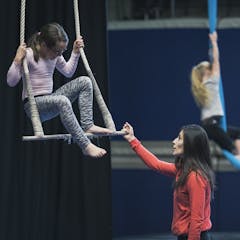
Articles on Self-esteem
Displaying 1 - 20 of 59 articles

A recent study showed encouraging people with obesity to interact with others more can keep them alive for longer.

Cognitive disorders can often impact self-confidence, for the better or for the worse. But we won’t be able to offer adequate treatment unless we understand the mechanisms, one scientist warns.

Whether experienced directly or indirectly, racial incidents can trigger numerous psychological impacts on Black people, including lower self-esteem and anxiety.

We often think of self-esteem as either high or low, but the level of your self-esteem might be less important than the stability of your self-esteem.

Research shows that social media, with it endless promotion of unrealistic standards of beauty, has had a negative impact on millions of young people.

Composer Nicholas Britell festoons earnest Romantic music with sounds that gleefully desecrate it, underscoring the show’s emotional core: a lust for power joined by immense self-loathing.

Friendships are important, but are they always healthy? New research finds that teens who feel dominated by their friends experience lower self-esteem and more symptoms of anxiety and depression.

Understanding the why of procrastination is key to breaking the habit.

Female statistics students had higher final exam grades than their male peers, even though they had less confidence in their statistics abilities at the start of the semester.

Obese persons are regularly associated with laziness and inactivity in Ghanaian society.

Non-standard ways of speaking are often deemed inferior, affecting schooling, social lives and job prospects.

Intellectual self-image matters because it’s often a self-fulfilling prophecy: if you think you can’t, you won’t.

Skin-shade prejudice can have a lasting impact both on people’s self-confidence and on who they in turn find attractive. Understanding how it works is key to resisting it.

Comparing ourselves to people who are worse off than we are on social media should make us feel better. The opposite is true.

A growing body of research points to the body’s natural cannabinoid system as the primary driver behind the runner’s high – and the mental health boost and stress relief following exercise.

Ample research demonstrates the harms Instagram causes teen girls, especially around body image. Meta is now facing the consequences of knowingly marketing a harmful service.

Teaching circus arts — from juggling to trapeze — in physical education classes increased children’s physical literacy, resilience and participation, with greater gender equity.

A new study finds that women are just as likely as men to assume something’s wrong with a woman who decides she wants to sleep with a handful of partners.

Relying solely on job placement as an indicator of successful intervention misses out on outcomes that are equally important, or more so, amid high structural unemployment.

Good mental health is the ability to adapt to changes and stress. Whatever school looks like, parents can help keep kids’ social-emotional development on track in these four areas.
